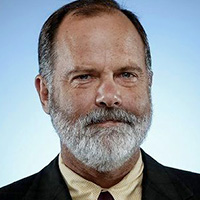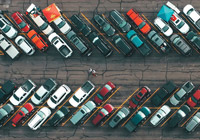THE SOCIAL SCIENCES CAN BE A MESSY BUSINESS. What works in theory or on paper may not unfold as expected. Well-intentioned experts ask Americans to wash their hands and stay home from work if they feel ill, only to provoke a run on paper towels and bottled water.
At the same time, policy that is entirely ad hoc can be frustratingly slow to respond to field testing. Ask the students of the Los Angeles Unified School District who have been told to be patient while the district evaluates charter schools or classroom size. Being forced to wait for years for answers makes innovation irrelevant for a student and her family.
That makes the interaction of research and real life especially crucial in developing sound ideas for making society better. This issue of Blueprint identifies some of the complexity, frustration and potential when researchers and policymakers come together.
Researchers at UCLA are confronting homelessness by trying to rescue those in danger of losing their housing. The researchers are working with government officials in Los Angeles and elsewhere to test the hypothesis that data can help keep a family sheltered. Educators are rolling out community schools and studying them as they go, testing “improvement science” as it probes progress for equity and other measures of teaching success. Housing experts in academia and their allies in the Legislature butted against the limits of politics this year and last when they tried to win approval of a bill that would have usurped some local control on behalf of housing and environmental priorities. And Donald Shoup, a UCLA legend, has pioneered new ways of addressing one of modern society’s most ubiquitous stresses: parking.
This can be frustrating. Shoup calls parking the “most emotional issue in transportation,” and no one who has searched for a spot to leave a car in Westwood at lunchtime would disagree. But there are hopeful signs, both at the high altitude of policy formation and in the daily lives of those who live with the results.
Backed by leaders in both parties, California is extending health-care protections to individuals and families who only recently were vulnerable to sudden illness. State Sen. Robert Hertzberg, a veteran of Southern California politics, is patiently and successfully tackling other problems that hamstring this state and region — issues such as voter initiatives, legislative redistricting and state budgeting. His formula: He starts by carefully framing the problem and only then moves to the limits of politics.
And at the other end of the conversation, James Fallows, a renowned journalist and author, has recently completed a long national tour, reaching out to residents of small and medium-sized towns and cities to investigate what works in their lives and what doesn’t. To a surprising and encouraging degree, he and his wife and co-author, Deborah Fallows, discovered com- munities making progress, luring new businesses, thinking constructively about schools, and building river walks and parks and meeting places. The communities are conservative — Greenville, S.C., to name one — and liberal — Burlington, Vt., the home of Bernie Sanders. Community leaders cover the political spectrum as well. And yet, reports of national division notwithstanding, they are solving problems on the ground.
The laboratory of life isn’t simple or germ-free. It is subject to all the failings of human nature. But it is where life happens, and it’s where ideas go to be tested, sometimes failing miserably, other times yielding the possibility of hope.
























